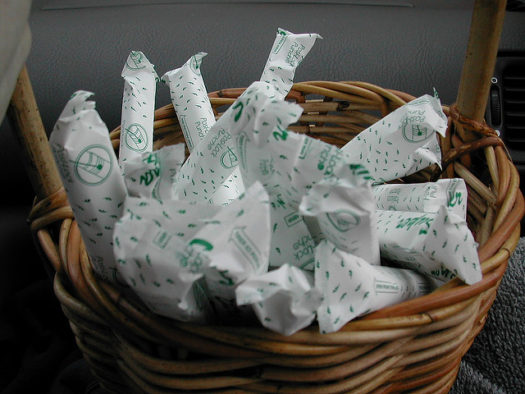
April 1, 2017; The Guardian
Two years ago, Shafaq Hasan wrote about the worldwide campaign to eliminate taxes on women’s feminine hygiene products:
Proper reproductive health and hygiene is and has been one of the core issues of the nonprofit sector, but it has now resurfaced, with women asking why the government taxes sanitary products, which are staples in women’s reproductive health. Of course, tampons are among the slew of other goods and services that have a sales tax. But governments around the world also add on a consumption tax on top of a sales tax—a “tampon tax,” as it has been dubbed worldwide. The issue with this tax is that by making these products more expensive, the government is also making them more inaccessible. Yet, the taboo of periods and menstruation likely prevents any serious conversation about the issue, despite half the world’s population having required at some point in their lives a sanitary product.
Five American states have waived the sales tax on sanitary products, leaving 45 states that have not, despite exempting other essential items like groceries. A Time article further pointed out the hypocrisy in certain states. For example, New York, which taxes sanitary products, doesn’t tax dry cleaning, newspapers, admission to the circus, and other completely far more unnecessary goods and services than tampons.
Earlier this year in Malaysia, petitions to exempt sanitary products from the country’s goods and services tax only elicited chuckles from Parliament. On the other hand, Canada is among an elite group of countries to have done away with the tax completely this past May. Almost 75,000 signed a petition calling for an end of the tampon tax. Understandably, the backlash pointed out that while certain items like cake decorations and music lessons are not taxed, sanitary products were. Kenya, a country where having your period means missing school, has eliminated a sales tax and the Value Added Tax (VAT), or consumption tax on products, as well. Jamaica, Nigeria, and Lebanon are among the other countries that have also eliminated a VAT tax on sanitary products.
In the UK, the government actually capitulated to the campaign to eliminate this controversial tax—and then reversed itself, though former chancellor George Osborne vowed that more than £10m a year would be distributed from the tax proceeds to women’s organizations. Seventy organizations share a total of 12 million pounds. It is one of the largest awards made. But now it has emerged that £250,000 of that money is going to a controversial anti-abortion group called Life.
Sign up for our free newsletters
Subscribe to NPQ's newsletters to have our top stories delivered directly to your inbox.
By signing up, you agree to our privacy policy and terms of use, and to receive messages from NPQ and our partners.
A spokesperson for the End Violence Against Women Coalition said, “We are surprised to see that Life is the recipient of a very significant tampon tax grant. The government set out clearly that this money would be spent in ways that would address women’s specific needs and inequalities. It is hard to understand how a service offering counseling based on the fundamental premise that abortion is wrong, to vulnerable women, can do that.”
Life describes itself as unique, combining “pro-life advocacy and education work with nationwide services providing positive alternatives to abortion.” It served notice last year of plans to increase its online presence to compete with established service providers such as Marie Stopes and the British Pregnancy Advisory Service (BPAS).
Labour MP Paula Sherriff commented, “It will seem bitterly ironic to many women if we are taxed for our biology, only for the government to hand over that money to organizations that don’t even believe we should have control over our own bodies, especially when so many are left without basic sanitary protection.”
Just this Thursday, I led a Commons debate on period poverty and discussed terrible cases like the homeless women who can’t afford tampons and whose health is at risk, the girls in Leeds who play truant during their periods and a charity that provides free sanitary products to Africa now getting requests from schools in Britain because so many female pupils cannot afford them…Tackling these issues would surely be a better use of the tampon tax fund. The minister agreed on Thursday to look at funding for sanitary protection in schools and homeless shelters, and I will be asking the government to review their allocation of the tampon tax fund urgently.
—Ruth McCambridge












